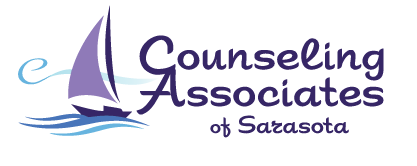Early diagnosis of depression, before it can develop from moderate to severe with potential grave risks, can have positive effects in all areas of life.
We often equate depression with sadness but sadness and depression are very different states. Feelings of sadness usually come and go. Depression, on the other hand, is a constant state of dark moods and many other symptoms.
In mild and some moderate cases of depression psychotherapy will usually bring positive change. For more serious cases, medication such as SSRI’s in conjunction with psychotherapy is the usual recommendation.
Treating depression in its early stages will benefit you:
Improved Health
If you are depressed, getting treatment may help prevent some serious diseases down the road. That’s because depression can take a toll on your body. One study found that women who were depressed had double the risk of sudden cardiac death than women who weren’t. Getting treatment may help lessen health risks.
Better Performance at Work
Depression can make it hard to hold a job. If you’re depressed, you might lose focus at work and make more mistakes. If you think depression might be affecting you at work, getting help now could head off serious problems.
Sharper Thinking and Better Memory
Feeling forgetful? Does your thinking seem fuzzy? Experts have found that depression might cause structural changes to the areas of the brain involved in memory and decision-making.
The good news is that depression treatment may prevent or reverse these changes — clearing away the cobwebs and strengthening your recall.
Happier Home Life
Irritable and angry? Constantly snapping at your kids — and then feeling bad about it? Getting depression treatment can help boost your mood. And that can help reduce tension around the house and improve your relationship with your family.
Healthier Lifestyle
Why does depression cause some people to gain weight? In part, it’s behavioral — you may withdraw and become less active, or turn to food for comfort. It’s also physiological — low levels of certain brain chemicals can trigger a craving for carbs. Getting treatment may change that while giving you the energy to exercise and eat well.
Less Chaos, More Control
When depression zaps your energy, even the most basic tasks — like vacuuming or paying the bills — can become impossibly hard. The more chaotic things get, the less capable you feel. Depression treatment can restore the energy you need to take control of your life and get it organized.
Lower Risk of Future Depression
People who have been depressed have a higher risk of becoming depressed again. But ongoing therapy or medication may help prevent depression from coming back. Even if it does return, treatment now will prepare you. You’ll know the early signs. You’ll know some coping skills. And you’ll know where to get help.
Stronger Ties With Friends & Family
Treating depression may improve your social life. Depression isolates people. It can sap your self-esteem, making you feel unlikeable. While therapy and medication can help restore some of that lost confidence, you still need to decide to reach out. Reconnecting to old friends when you’re depressed — not to mention making new ones — is hard. But it’s a crucial part of getting better.
Getting Help
Some people with depression try to wait it out, hoping it will get better on its own without treatment. That’s a mistake. Studies have found that the longer depression lasts, the worse your symptoms may get and the harder it is to treat.
See your doctor. Schedule an appointment with a therapist. The sooner you get help, the better your odds for a healthy future
If and when you are ready…
If you want guidance to make changes in your life arising from depression and/or its close relative, anxiety, I invite you to call me today to set up an appointment held on Zoom by either phoning me at (941) 306 1235 or emailing me at [email protected].
I offer a complimentary 15 minute by phone if you have questions you would like answered before beginning counseling.

